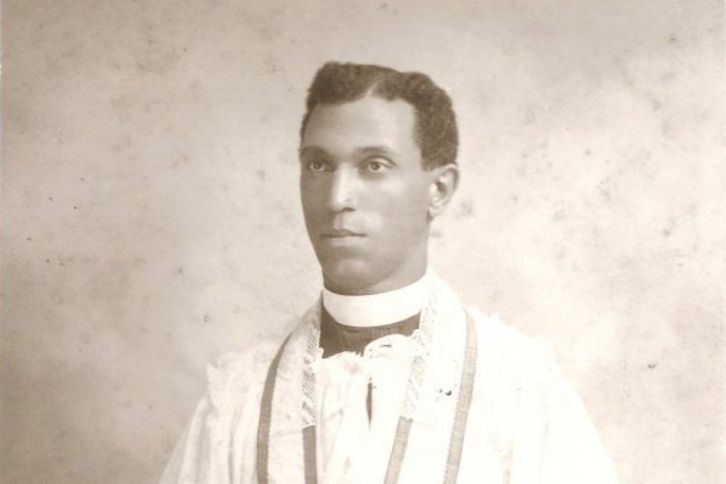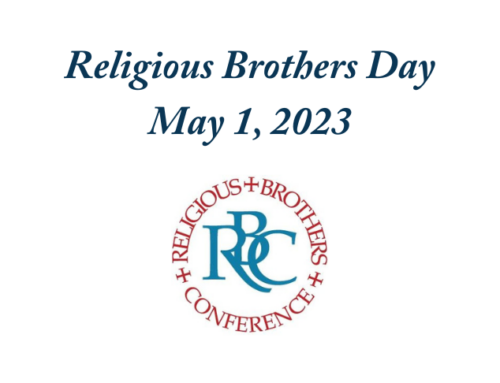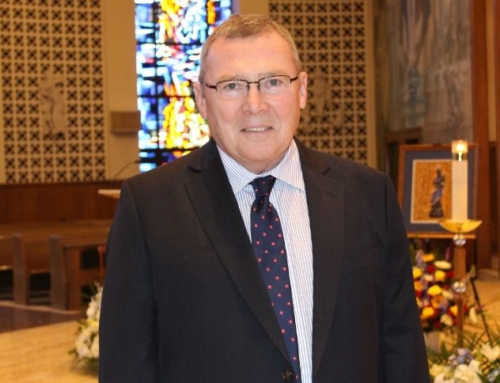On April 20th, a Minnesota jury convicted former police officer Derrick Chauvin of the murder of George Floyd. The Hennepin County Courthouse, barricaded in downtown Minneapolis, had gathered a crowd of protestors, who erupted into cheers when the verdict was read.
Seven miles away at the University of St. Thomas, Dorsey Way, named for Josephite priest John Henry “Harry” Dorsey, was far more quiet. But underneath the quiet contrast lay a life whose suffering mirrored the injustice Floyd suffered.
Dorsey, only the fifth African-American ordained in the United States, suffered significantly for his vocation. Reflecting on his life, he wrote: “From…my ordination to the present, my life has been one heavy cross.” Historian Stephen Ochs writes that African-American priests
often paid a staggering emotional price for their vocations…. [Dorsey’s life] exemplified the heroic suffering of the pioneering Black priests of the early twentieth century. As a Black priest, he endured misunderstanding, humiliation, isolation and discrimination, often from his brother priests. Eventually, the strain wore him down, leaving him only a shell of his former self.
Some of that strain was the cultural environment Dorsey worked in. Scholar Judith Weisenfeld discovered some archival newspaper articles about Dorsey, which attempt to allude to sexual impropriety between African-American priests and white women in the confessional and embodies the nativist bias of the day. But there was also racism within the Catholic Church: Ochs notes that religious orders often attempted, and were usually successful, at preventing African-American candidates from joining their congregation. Nor were those policies limited to male orders: scholar Shannen Dee Williams writes about women like Anne Marie Becraft, who was prevented from joining women’s religious orders on racial grounds.
The University of St. Thomas named Dorsey Way in 2017. Dorsey was the first African-American student at then-College of St. Thomas Aquinas, enrolling in 1888 at the suggestion of Bishop John Ireland, long a proponent of a specifically American form of Catholicism. Current students at the St. Thomas noticed that there were no named buildings for people of color, and suggested that the university honor Dorsey. The university responded by dedicating “Dorsey Way,” a large corridor of foot traffic through its campus.
Read more about Dorsey at the University of St. Thomas here, and at the Black Catholic Messenger here. Ochs’s full article can be found on JSTOR here.
Photo: University of St. Thomas





